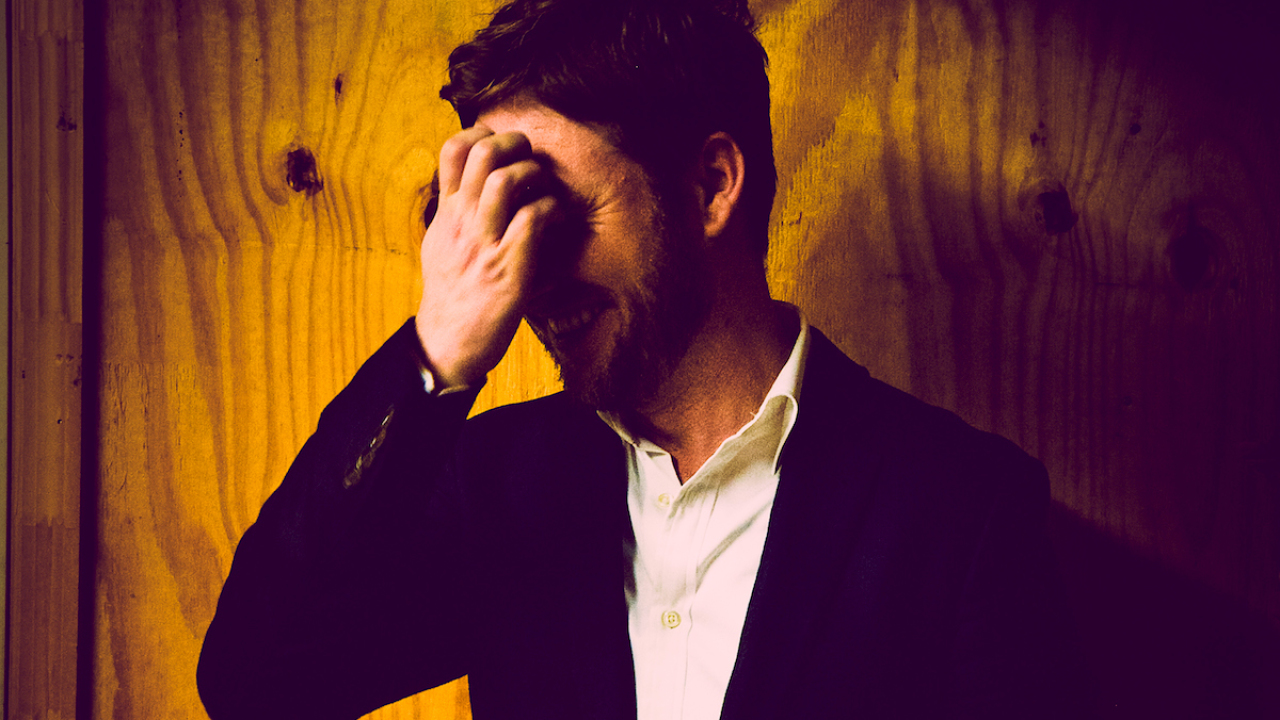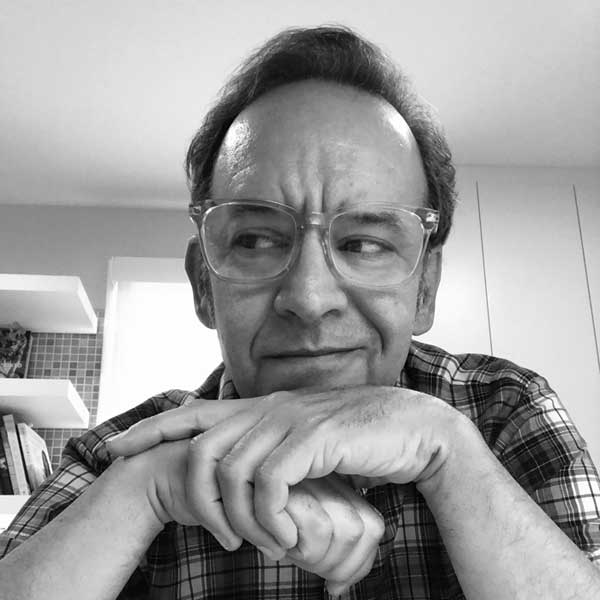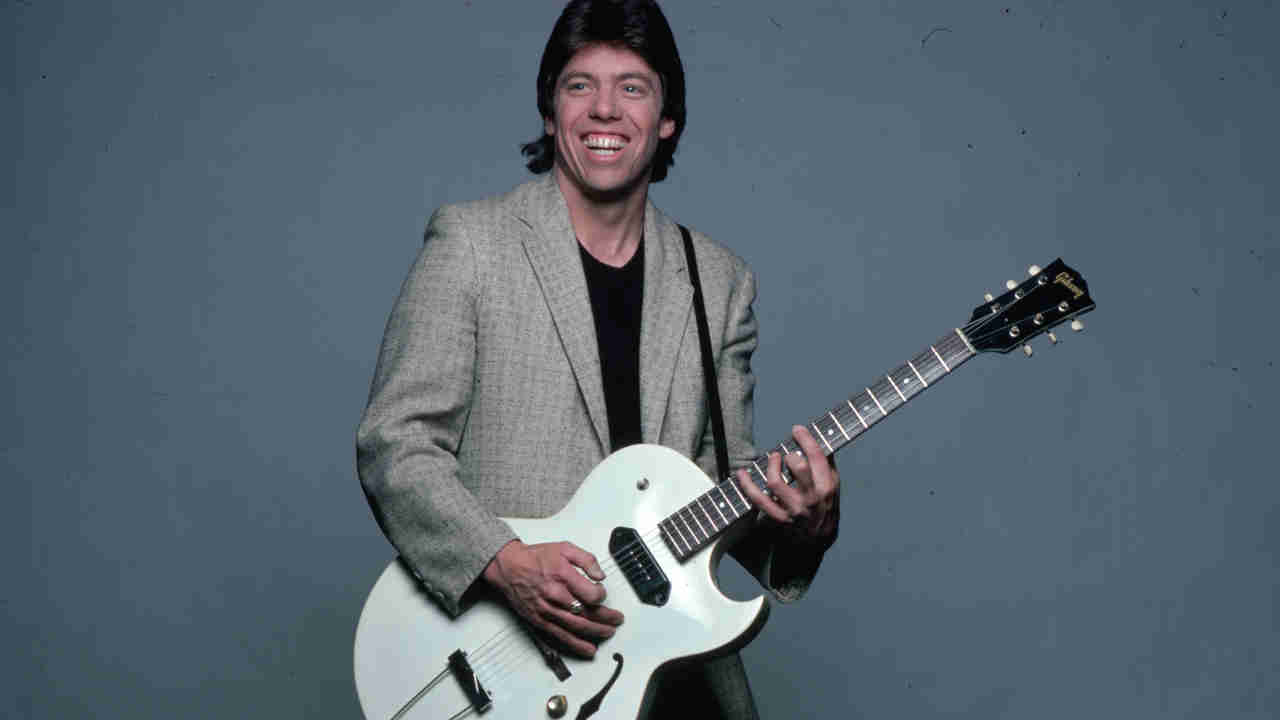American Troubadours: Cory Branan
Happy to be a no-hit wonder.

Select the newsletters you’d like to receive. Then, add your email to sign up.
You are now subscribed
Your newsletter sign-up was successful
Want to add more newsletters?

Every Friday
Louder
Louder’s weekly newsletter is jam-packed with the team’s personal highlights from the last seven days, including features, breaking news, reviews and tons of juicy exclusives from the world of alternative music.

Every Friday
Classic Rock
The Classic Rock newsletter is an essential read for the discerning rock fan. Every week we bring you the news, reviews and the very best features and interviews from our extensive archive. Written by rock fans for rock fans.

Every Friday
Metal Hammer
For the last four decades Metal Hammer has been the world’s greatest metal magazine. Created by metalheads for metalheads, ‘Hammer takes you behind the scenes, closer to the action, and nearer to the bands that you love the most.

Every Friday
Prog
The Prog newsletter brings you the very best of Prog Magazine and our website, every Friday. We'll deliver you the very latest news from the Prog universe, informative features and archive material from Prog’s impressive vault.
The term ‘singer-songwriter’ feels like a toe tag to me,” Cory Branan says with a laugh. “But then all these stylistic phrases are cringeworthy, in their own ways. I just started a long time ago calling what I do ‘mutt music’.”
At first glance, Branan may appear to be of the typical pedigree – just another bearded dude with jeans and a Taylor acoustic. But although he admits he digs the occasional Gordon Lightfoot tune, he’s one of a growing breed of troubadours who are subverting the genre with a raucous spirit that’s more CBGB than Laurel Canyon.
“I’m a blend of the mess that I grew up in,” he says. “This legacy of Memphis and Mississippi, country and gospel, because I’m from the south. At the same time, I was this little hood rat kid glued to MTV. All of this music was coming at me really piecemeal, Prince and Eazy-E at the same time as Minutemen. Later I found artists like John Prine and Tom T Hall.”
Those disparate influences fuse together on Branan’s latest album, No Hit Wonder. Kicking off with the Stones-y swagger of You Make Me and the revved-up rush of the title track, it winds through a rockabilly-tattooed Sour Mash, the Vaudevillian charmer C’mon Shadow and the honky-tonkin’ All The Rivers In Colorado, before wrapping up with the Zydeco-flavored Daddy Was A Skywriter and the Little Feat-ish The Meantime Blues. The through-line to this musical eclecticism is Branan’s ultrasmart lyric writing, full of razor-sharp lines and freshly turned phrases. “I don’t have much of a singing voice, but I try to write the crap out of the songs,” he says.
Branan’s zig-zag course to solo singer-songwriterdom started when he was a 12-year-old budding metal shredder. “But when I was fourteen my dad took me to a guitar clinic at a local music store, with Elliot Easton, the guy who played with The Cars. It was the first time I’d ever been around a rock star, and he was totally down to earth. I just liked the guy. And when I saw the tasteful, cool way he played, it did something to me. I thought, ‘Yeah, there it is.’”
Through his teens, Branan apprenticed through a string of “some really awful bands – whoever wanted me.” In his early twenties, tiring of the “playground politics and arguments over where you’re going to eat lunch” that come with touring in a band, he started moonlighting solo at open-mic nights, first playing covers by Neil Young and Lemonheads, then tentatively debuting his own songs. “The reason I was so nervous at first playing and singing was either I’d be spazzy and weird and all over the place, or I’d throw up.
“But over time I found a way to work my spazziness and nervous energy into the show and play off the crowd. I remember when I saw Todd Snider early on, it clicked for me that you can take the elements of a given room and a given crowd and make that an equal part of the night. You can work with that as a solo performer, telling stories, making jokes. You can really pivot and deliver. Use dynamics. If I want to push a line, or drag it, or drop the music out, I can. Not to get too heavy about it, but Lorca, the poet, talked about this thing of ‘duende’. It’s like the equivalent of the Greek muse, but it means ‘wrestling with the angel’. It can only happen in a few art forms, like dance and music, because it unfolds in real time. Capturing the unique moment. It’s never going to be like that again. That’s what happens on a good night.”
Sign up below to get the latest from Classic Rock, plus exclusive special offers, direct to your inbox!
All of which, Branan says, makes fixing 12 tunes into the grooves of an album such a challenge. “People will ask me: ‘Why don’t you record an album like your live show?’ Well, I will record a stripped-down record at some point but, trust me, you don’t want to hear what I do live on your stereo. It would be the most annoying thing in the world, because it’s very in-the-moment, specific to the night and venue. Tempos would drag, volumes would change. It would be jarring.”
On latest album The No-Hit Wonder, taking songs from the past two years, Branan found himself gravitating towards those that felt right up the middle. “I think it’s more of a roots record,” he says. “I went home to take care of my dad in the last months of his life, and in the middle of that I established stronger ties to where I grew up, around Mississippi and Memphis. It wasn’t a conscious decision, but I think this turned me back towards the country and gospel music I grew up with.”
Following that direction, he teamed up with producer Paul Ebersold. The pair agreed they wanted a full band sound that kicked through the speakers but still had headroom. “A sound where you can hear the players play,” adds Branan. Ebersold assembled a team of young session lions in Nashville, including the ace rhythm section of drummer Jon Radford and bassist Adam Gardner, plus Americana darlings such as Caitlin Rose and Jason Isbell.
“Paul is a Memphis boy, but we cut the record in Nashville, where I’m living now,” says Branan. “So I got the best of both worlds. There’s a spontaneity to the recording process, not over-thinking, capturing something fast and loose. Spontaneity with precision.”
While Branan looks forward to a few local shows with the same studio band, he’ll be hitting the road with just his acoustic guitar. “It’s fiscal necessity,” he says. And he admits that the view from his van window is slightly different now. “I still tour just as much, but the decision to be a lifer is a decision now. Before, I felt like I didn’t have a choice. I was compelled to do it. And now, with family and a true home, it puts it in stark contrast, the choice to drive away from that home for weeks at a time.”
And as he ventures out, what does he hope listeners get from The No-Hit Wonder (the title is a tribute to his fellow singer-songwriters who are fighting the good fight without radio play and publicity budgets)? “I hope people get some calories,” Branan says with a laugh. “I hope there’s enough meat in there. I’m trying to write accessible, popular songs that are there on the first listen, but I also put a lot of work into making them nuanced and worth repeat listenings.”
No-Hit Wonder is out now on Bloodshot.
Read more on American Troubadours Lucinda Williams, Justin Townes Earle and Chuck Ragan.
Bill DeMain is a correspondent for BBC Glasgow, a regular contributor to MOJO, Classic Rock and Mental Floss, and the author of six books, including the best-selling Sgt. Pepper At 50. He is also an acclaimed musician and songwriter who's written for artists including Marshall Crenshaw, Teddy Thompson and Kim Richey. His songs have appeared in TV shows such as Private Practice and Sons of Anarchy. In 2013, he started Walkin' Nashville, a music history tour that's been the #1 rated activity on Trip Advisor. An avid bird-watcher, he also makes bird cards and prints.

